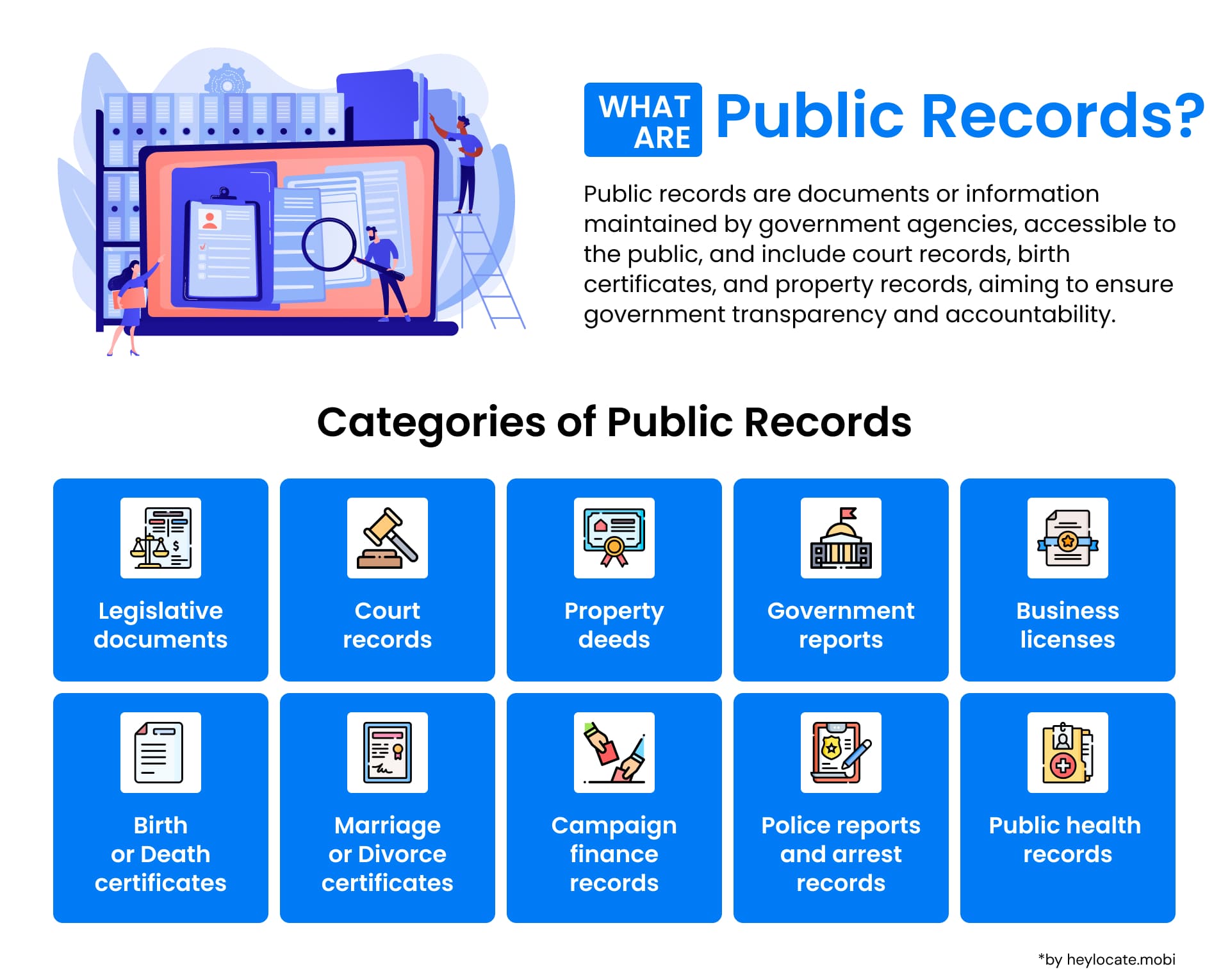Public Records
What Are Public Records?
Public records are information created or received by government agencies during official business that is accessible to the public. These records encompass a wide range of documents and serve as a vital source of information about government activities and individuals.

Categories of Public Records
Public records can be categorized into various types based on their content and purpose. Some common examples include:
- Birth certificates: Document the birth of an individual and typically include details such as date, time, location, and parents’ names.
- Death certificates: Provide information about an individual’s passing, including the cause of death and burial/cremation location.
- Marriage licenses: Document the legal union of two individuals and are used for legal purposes.
- Court records: Contain information about legal cases, including parties involved, the nature of the case, and court decisions.
- Property deeds: Document ownership of real estate.
- Government reports: Provide information on government activities, budgets, and contracts.
- Mugshots: Photographs taken by law enforcement at the time of arrest.
Access to Public Records
Freedom of information (FOI) legislation in many countries guarantees the public’s right to access public records. These laws establish procedures for requesting information from government agencies, who are obligated to respond within a specified timeframe. However, there are limitations, and some records may be exempt from disclosure due to privacy concerns or national security risks.
Public Records and Privacy
Public access to records can conflict with individual privacy rights. Records containing personal information like social security numbers or medical records may be redacted or withheld entirely. Balancing transparency and privacy is an ongoing challenge.
The Impact of the Internet on Public Records
The internet has revolutionized access to public records. Online databases allow individuals to search and view records from anywhere, increasing convenience and efficiency. However, online access raises privacy concerns, as personal information might be readily available. Measures like redacting sensitive details are being implemented to address these concerns.
References
- Public records – Wikipedia
- What is a Public Record? | CIVICPLUS
- What is a Public Record? | Clark College
- public record | Wex | US Law | LII / Legal Information Institute
- Public Records | Definition & Examples – Lesson | Study.com
- Public Records Management – What Is A Public Record? | Granicus
- What is a Public Record? | Tennessee Secretary of State